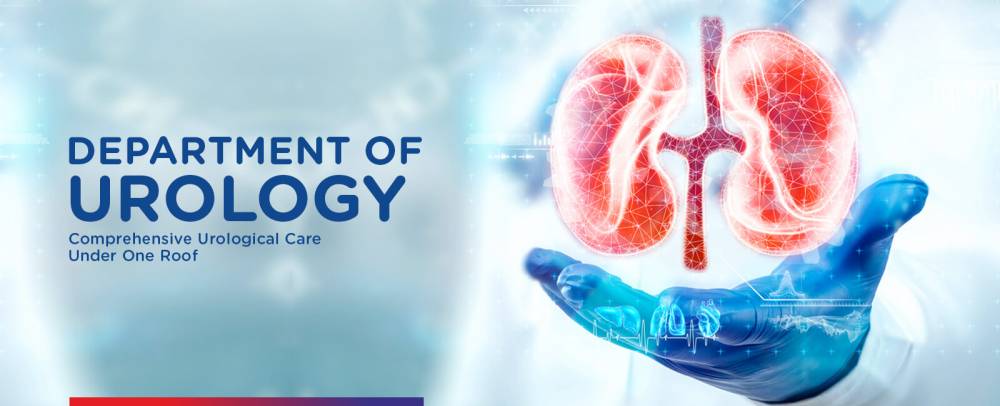
The department of Urology at Prabha Hospital offers comprehensive urological services to diagnose and treat a wide range of urological problems occurring in all segments of the population from pediatric to geriatric age groups, both in males and females. Highly qualified and experienced dedicated urologists are available to provide prompt and dedicated care, both medical and surgical, to urological ailments including emergencies. The latest "state-of-the-art" technology and equipment are available, supported by trained staff, ultramodern diagnostic laboratory and radiological facilities, ICUs and operation theatres. Some of the facilities include painless lithotripsy (ESWL), laser prostate surgery, flexible ureteroscopy, 3-D advanced laparoscopy, computerised urodynamic studies and renal transplantation. One of the Best Hospital in Agra, Uttar Pradesh.
These often arise when bacteria migrate from the perineum to the urethra. Symptoms include abnormal urination Increase frequency, urgency, burning micturation, dysuria), incontinence, nausea, vomiting, fever, and chills. It mostly affects women but can affect to men also.
A malfunction in the urinary system can lead to involuntary loss of bladder control. In women, this may result from a weakening of the pelvic floor muscles during pregnancy, any pelvic surgery, history of pelvic radiotherapy
This can result from damage to the male reproductive tract and a variety of sperm disorders. One common cause is varicoceles, an enlarged vein in the sac beneath the penis. Surgery can sometimes help.
Damage to the kidneys can lead to swelling in the hands and ankles, high blood pressure, and other symptoms. If the kidneys no longer work effectively, this is kidney failure. Ultimately, it can be fatal.
A person may require kidney transplants following kidney failure.
Treatment of the bladder, kidneys, prostate gland, testicles, penile cancer and any other cancer that affects the genito urinary system.
when the tissues and muscles of the pelvic floor are no longer able to support the organs in the pelvis, the organs can drop from their usual position.
Benign prostatic hyperplasia (BPH) affects around 1 in 3 men over the age of 50 years. An overgrowth of cells in the prostate gland causes the urethra to constrict, leading to problems with urination.
The penis is unable to attain sufficient rigidity to fully participate in sexual intercourse. This is often a symptom of an underlying condition.
Premature Ejaculation is a type of sexual dysfunction that occurs when a man has an orgasm and releases (ejaculates) semen sooner than he or his partner would like. It often happens before or shortly after penetration during intercourse
A fibrous layer of scar tissue develops beneath the skin of the penis. This can lead to bending or curving in the penis (phimosis) during an erection that can cause pain and lead to difficulties with sexual intercourse.
A chronic inflammatory bladder condition can produce discomfort ranging from mild to severe.
Small, hard deposits made from mineral and acid salts form in the kidneys but can pass through into the ureters. They can affect urination and cause pain, nausea, vomiting and Hematuria.
Infection or inflammation of the prostate can cause painful urination or ejaculation. It can be acute or chronic.
Normally, the testicles form inside the abdomen of a fetus and descend into the scrotum before birth. If one or both does not descend, sperm production can be impaired, and there is a risk of complications and malignancy in future
scarring of the urethra can narrow or block the path of urine flowing from the bladder. Causes include infection, inflammation or injury. Symptoms include painful urination and reduced output. It can lead to complications such as prostatitis and urinary tract infections and upper tract damage
This includes the treatment of urological problems in children that are too complex for non-specialized pediatricians.